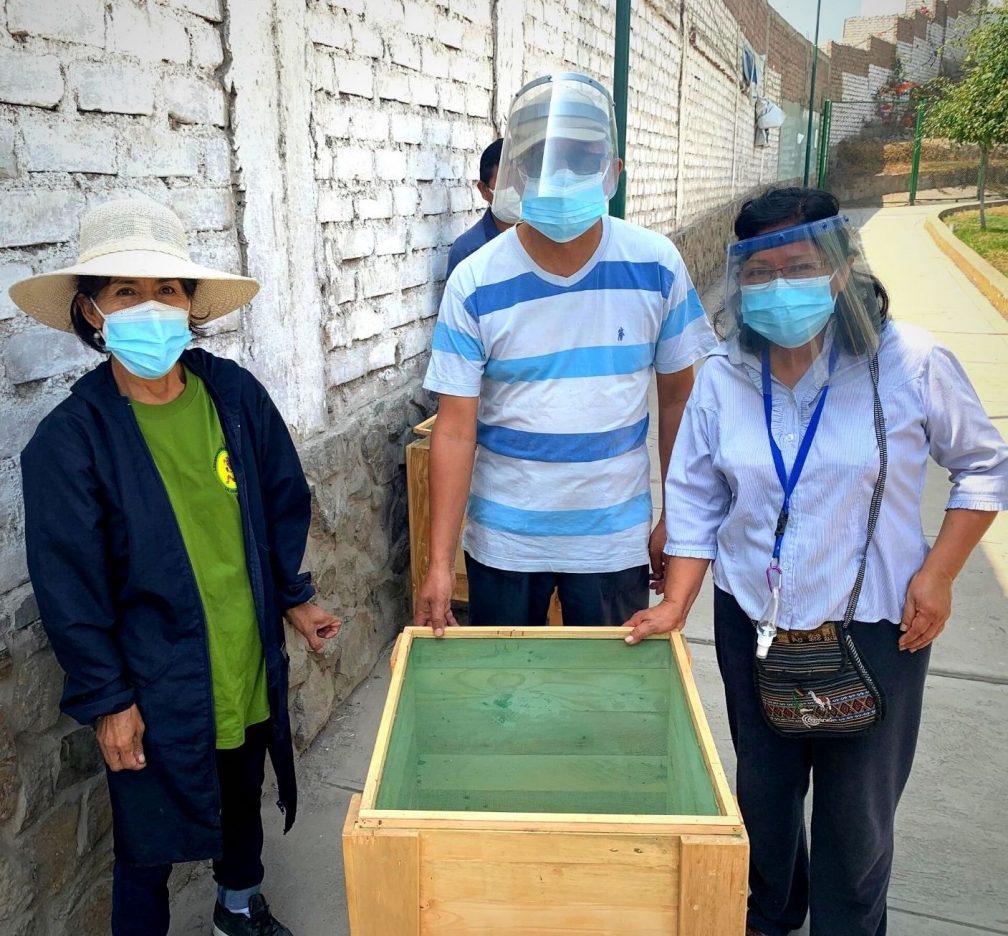The initiative was born from the need to promote citizenship and a culture of care for the environmental through the integral management of urban solid waste with productive and environmental activities. In the association, our main aim is solid waste management, recovery, classification, processing and valuing so-called waste. In addition, we produce and market goods, such as compost, that generate income and help sustain the project.
We want to replicate this project in other parts of the country and in coordination with the Columban development committee, we seek to expand the horizon into the Northern zone of Lima. The Biohuertos project began working with teachers and parents of the Manuel Duato school, as well as residents of some nearby communities. The first step was to train people on the implementation of urban gardens in their homes and at school using organic waste to make compost, which is a soil improver. Families have to learn to take advantage of organic waste that is normally discarded. It is known that in a natural cycle, a person eats vegetables, they produce waste that we can process and return again to the soil as nutrients to generate new vegetables.
The pandemic virus attacks more aggressively a weak organism, so for this reason, we are encouraged to strengthen our immune system by taking care of our diet and this project ensures that families can have food security. Actions such as producing your own food (vegetables) and avoiding going to the market contribute to reducing the risk of contagion and also lower the costs of the family basket.
What do we do with pests?
We teach the community how to do biological control of natural pests and also how to implement effective traps.
How did you handle this project in the midst of the pandemic? How difficult was this whole process?
At the beginning it was quite a challenge but using digital tools we were able to manage communication. So, we created WhatsApp groups to send the information and materials, we learned to use the Zoom platform with virtual trainings. In other words, we have reinvented ourselves to continue helping people.
The process to develop Biohuertos is quite economical, we use recyclable materials, we take advantage of resources and we use creativity for the rest. On the one hand, vegetables such as radish, take a month to grow and other vegetables 3 months.
Where do you find the motivation and inspiration to dedicate yourself to doing this project?
It has been a great adventure; It all started in times of the cholera epidemic, at that time we were looking for alternatives to reduce the amount of garbage and among them, we realized that feeding the worms with organic waste generated humus, which later served as fertilizer to prepare the poor soil for sowing. When we started, nobody believed in us, they called us crazy and after 7 months we had the compost ready to fertilize the soil, then we proceeded to plant a flower display. It was very rewarding when it started to flourish, we transformed something that no one wanted anymore into something useful. Turning something negative into something good for the community was the response to our detractors and the necessary motivation to continue with this project that has been going on for more than two decades.
Work for the future
Currently, we are working on a systematized replication module embodied in a document, and this has already been sent to the Ministry of the Environment for approval. Thus, we will be able to replicate this project at the national level. In addition, we want to implement an agroecological system that includes the processing of waste, its recovery, generating our own energy and recycling the water in homes, all this through plants.

